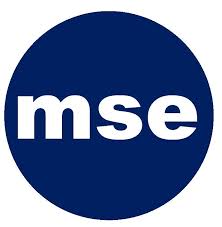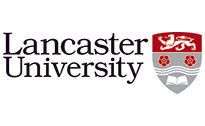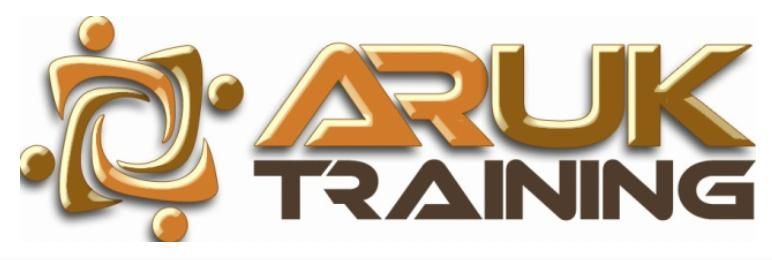
Implementing Facility Management and Equipment Maintenance Reliability (IFMAM Workshop 2, 3)
Course ID: 2509157101284EGI
Course Dates : 15/09/25 Course Duration : 10 Studying Day/s Course Location: Dubai, UAE
Language: Bilingual
Course Category: Professional and CPD Training Programs
Course Subcategories: Leadership and Management Excellence
Course Certified By: * Projacs Academy
* Professional Training and CPD Programs
Certification Will Be Issued From :
KSA
Course Fees: £5,731.58
Vat Not Included in the price. VAT may vary depending on the country where the course or workshop is held.
Click to Pay
Date has passed please contact us Sales@e-s-hub.com
Course Information
Introduction
Facility management and equipment maintenance reliability are critical components of operational efficiency in modern organizations. These disciplines ensure that physical assets and infrastructure function optimally, supporting business continuity and enhancing productivity. In industries ranging from manufacturing to healthcare, the effective management of facilities and equipment directly impacts profitability, safety, and customer satisfaction. The growing complexity of technological systems and the increasing demand for sustainability have further elevated the importance of mastering these areas. This course addresses the pressing need for professionals who can bridge the gap between theoretical knowledge and practical application in facility and maintenance management.
One of the key challenges in this field is the misalignment between strategic organizational goals and day-to-day operational practices. Many organizations struggle with outdated maintenance strategies, inefficient resource allocation, and a lack of standardized processes. For instance, a case study from a leading automotive manufacturer revealed that unplanned equipment downtime cost the company millions annually due to reactive maintenance practices. By adopting reliability-centered maintenance (RCM) frameworks and integrating predictive analytics, the organization was able to reduce downtime by 30% within a year. Such examples underscore the transformative potential of implementing robust facility management and maintenance reliability strategies.
The course also seeks to address gaps in knowledge and practice, particularly in emerging trends like digital twin technology, IoT-enabled asset monitoring, and sustainable facility design. While these innovations offer significant advantages, their adoption often requires specialized skills and a forward-thinking mindset. Participants will explore these advancements through the lens of Total Productive Maintenance (TPM) and Lean Six Sigma methodologies, which emphasize continuous improvement and waste reduction. By understanding how these frameworks intersect with industry standards, learners will be better equipped to drive innovation within their organizations.
Mastering the content of this course offers numerous benefits, both for individuals and organizations. For professionals, it enhances career prospects by equipping them with sought-after competencies in asset lifecycle management, risk assessment, and performance optimization. Organizations, on the other hand, stand to gain from improved operational resilience, reduced costs, and enhanced compliance with regulatory requirements. A real-world example is a hospital that implemented a comprehensive facility management system, resulting in a 25% reduction in energy consumption and improved patient care environments. Such outcomes highlight the tangible value of investing in this expertise.
The curriculum draws upon established theories such as RCM, TPM, and the ISO 55000 standard for asset management, ensuring that participants receive a well-rounded education grounded in best practices. Additionally, the course incorporates insights from industry leaders who have successfully navigated the complexities of facility and equipment management. Through interactive sessions and case studies, learners will gain actionable insights into overcoming common challenges, such as balancing capital expenditure with operational budgets and aligning maintenance activities with long-term strategic objectives.
Ultimately, this course is designed to empower participants to become catalysts for change within their organizations. By fostering a culture of reliability and accountability, they can contribute to creating safer, more efficient, and sustainable work environments. Whether addressing aging infrastructure, integrating smart technologies, or optimizing workflows, the skills acquired in this program will enable professionals to tackle the multifaceted demands of modern facility and equipment management with confidence and competence.
Objectives
By attending this course, participants will be able to:
Analyze the principles of reliability-centered maintenance (RCM) and apply them to develop proactive maintenance strategies.
Evaluate the role of digital tools, such as IoT and predictive analytics, in enhancing equipment performance and reducing downtime.
Design sustainable facility management plans that align with environmental regulations and organizational goals.
Implement Total Productive Maintenance (TPM) methodologies to improve operational efficiency and workforce engagement.
Assess risks associated with asset lifecycle management and propose mitigation strategies to enhance resilience.
Apply Lean Six Sigma techniques to identify inefficiencies and optimize resource utilization in facility operations.
Develop compliance frameworks that adhere to international standards, such as ISO 55000, for asset management.
Who Should Attend?
This course is ideal for:
Facility managers, maintenance engineers, and operations supervisors seeking to enhance their technical and managerial capabilities.
Professionals in industries such as manufacturing, healthcare, hospitality, and utilities, where facility and equipment reliability are paramount.
Consultants and auditors involved in assessing organizational compliance with asset management standards.
Individuals aspiring to transition into roles focused on facility management or maintenance reliability.
Training Method
• Pre-assessment
• Live group instruction
• Use of real-world examples, case studies and exercises
• Interactive participation and discussion
• Power point presentation, LCD and flip chart
• Group activities and tests
• Each participant receives a 7” Tablet containing a copy of the presentation, slides and handouts
• Post-assessment
Program Support
This program is supported by:
* Interactive discussions
* Role-play
* Case studies and highlight the techniques available to the participants.
Daily Agenda
The course agenda will be as follows:
• Technical Session 08.30-10.00 am
• Coffee Break 10.00-10.15 am
• Technical Session 10.15-12.15 noon
• Coffee Break 12.15-12.45 pm
• Technical Session 12.45-02.30 pm
• Course Ends 02.30 pm
Course Outlines
Foundations of Facility Management
Overview of facility management principles and best practices.
Understanding the role of facilities in achieving organizational objectives.
Introduction to asset lifecycle management.
Key performance indicators (KPIs) for measuring facility effectiveness.
Day 2:
Reliability-Centered Maintenance (RCM)
Fundamentals of RCM and its applications in various industries.
Identifying failure modes and their impact on operations.
Developing RCM-based maintenance schedules.
Case study: Reducing downtime in a manufacturing plant using RCM.
Day 3:
Digital Tools and Technologies
Role of IoT in real-time asset monitoring and data collection.
Predictive maintenance using machine learning algorithms.
Benefits and challenges of implementing digital twins.
Practical exercise: Simulating predictive maintenance scenarios.
Day 4:
Sustainable Facility Design
Principles of green building and sustainable design.
Energy-efficient systems and renewable energy integration.
Waste reduction strategies in facility operations.
Compliance with LEED certification standards.
Day 5:
Total Productive Maintenance (TPM)
Core pillars of TPM and their implementation.
Engaging employees in maintenance activities.
Measuring Overall Equipment Effectiveness (OEE).
Group activity: Creating a TPM action plan.
Week 2
Day 6:
Risk Assessment and Mitigation
Identifying risks in asset management and facility operations.
Techniques for conducting risk assessments (e.g., FMEA).
Developing contingency plans for critical failures.
Case study: Managing risks in a power generation facility.
Day 7:
Lean Six Sigma in Facility Operations
Introduction to Lean Six Sigma methodologies.
Identifying and eliminating waste in facility processes.
Using DMAIC to improve operational efficiency.
Workshop: Applying Lean Six Sigma to a facility challenge.
Day 8:
Compliance and Standards
Overview of ISO 55000 and other relevant standards.
Ensuring compliance with health, safety, and environmental regulations.
Auditing facility management practices for continuous improvement.
Role of documentation in maintaining compliance.
Day 9:
Advanced Topics in Maintenance Reliability
Integrating AI and robotics in maintenance activities.
Challenges of managing aging infrastructure.
Future trends in facility and equipment management.
Panel discussion: Innovations shaping the industry.
Day 10:
Capstone Project and Certification
Presenting group projects on facility management solutions.
Feedback and evaluation from instructors and peers.
Final assessment and certification ceremony.
Networking session with industry experts.



















































